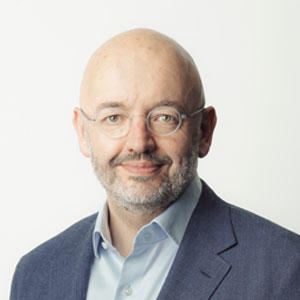Comment: WBCSD’s Peter Bakker explains why the sustainable business organisation is raising the bar for ambition and action on climate change, nature loss and social equity, and giving its members two years to get into line
Last week marked an important milestone for the World Business Council for Sustainable Development (WBCSD) and our members, 200 of the world’s leading companies.
Since 1995, we have been the go-to place for businesses that are serious about sustainability and demonstrate true leadership for sustainable development. A leading business sustainability organisation that I was proud to join as president and CEO some eight years ago.
In our 25th year, we have decided to bring our membership requirements in line with the urgent challenges facing our society
Now, in our 25th year, we have decided to bring our membership requirements in line with the urgent challenges facing our society – climate emergency, nature loss and inequality – by adding new, comprehensive criteria to our membership conditions:
1. Set an ambition to reach net-zero greenhouse gas (GHG) emissions, no later than 2050 and have a science-informed plan to achieve it.
2. Set ambitious, science-informed, short and mid-term environmental goals that contribute to nature/biodiversity recovery by 2050.
3. Declare support for the UN Guiding Principles on Business and Human Rights by having in place a policy to respect human rights and a human rights due diligence process.
4. Declare support for inclusion, equality, diversity and the elimination of any form of discrimination.
5. Operate at the highest level of transparency by disclosing material sustainability information in line with the Task Force on Climate-related Financial Disclosures (TCFD) and align Enterprise Risk Management (ERM) with environmental, social and governance-related (ESG) risks.
The updated conditions will allow our member companies to focus on putting credible science-based action plans into motion to transform our economic systems. Additionally, we expect our member companies to strive to the highest standards in corporate governance and transparency, aimed at enhancing the comparability of data for investors and other stakeholders.

WBCSD members are being asked to prepare to adhere to the new membership criteria as of December 2022. From 2023, adherence will be monitored through the WBCSD ‘Reporting matters’ project, which assesses WBCSD member’s reports on a yearly basis.
The fact that these were accepted by a strong majority of the leaders of our members during the 2020 annual general meeting (AGM) – based on the unanimous recommendation by our executive committee (ExCo) – shows that we are indeed the place for leadership and action on sustainability, but also that our members are pushing for higher standards.
Especially during this devastating pandemic, such an outcome underlines that businesses have not lost track of the greater pressing challenges looming ahead, and are building forward better by working on tackling them urgently and collectively, to create a world in which all 9+ billion people can live well within the boundaries of our planet.
In 2021 and going forward, our main focus will be on turning sustainability ambitions into concrete action, to make the resulted transformations real. Getting the new membership criteria approved was a first major step; now we need to keep the momentum going and step up on the critical work needed for that.
I have always believed in the importance of business in tackling global sustainability issues
The bottom line is that if we don’t radically change in the next decade, there is no point in optimism, because we will run out of time. The work with our members is already ongoing, and coincides with the Vision 2050 refresh the purpose of which is to formulate an action agenda for business for 2021-2030 to deliver the change that our planet and people desperately need.
We will continue to further support our members in their journeys towards adhering to the updated membership conditions and keeping their leadership positions in the world of sustainability and business.
The new benchmark is also a milestone for me personally. For more than 25 years now, I have been in different executive positions where I have seen the steady uptake of sustainability challenges by business over the years. When I was the CFO and later CEO of global transport and logistics company TNT (now PostNL), I always believed in the importance of business in tackling global sustainability issues. At the time, this translated into helping the UN tackle famine and malnutrition on a global scale through the first ever logistical partnership with the World Food Programme, which recently received a Nobel price.
Looking back, the sustainability milestone that the business community, united in WBCSD, has reached might have been considered wishful thinking once; reaching it today allows me to stay hopeful on the positive impact that sustainable business leadership can and should have going forward.

Peter Bakker is President and CEO of WBCSD.

